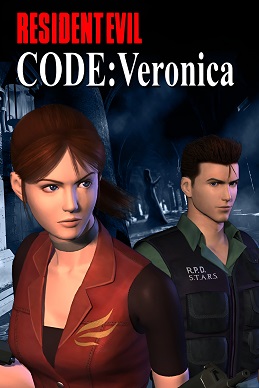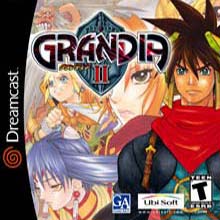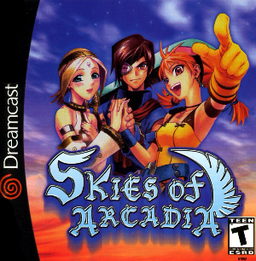You are using an out of date browser. It may not display this or other websites correctly.
You should upgrade or use an alternative browser.
You should upgrade or use an alternative browser.
Dreamcast was the GOAT system for underrated games
- Thread starter Fatboi1
- Start date
More options
Who Replied?SteelCitySoldier
TSC Fantasy Football Champion 2016
System was too far ahead of it's time (online gameplay) and the blatant disregard of security for their system (DVR games) killed it in the US (system stuck around for like five more years in Japan), no matter what this was the better system but Sony Playstation was like Apple iPod is now and the name alone was going to kill ANYTHING video game related at the time.








nairdas
I've Destroyed Whole Planets
Real shyt, DC was the truth. MvC2, Toy Commander, Project Justice, Power Stone 1 & 2, Plasma Sword, Shenmue, Soul Calibur. Yeah, that system was goat. It's probably what really started me playing fighters heavy.
xXMASHERXx
Superstar
Skies of Arcadia
PSO
Ikaruga
Put so many hours into those games then bought them again on other system(except SoA). Would probably buy them again.
PSO
Ikaruga
Put so many hours into those games then bought them again on other system(except SoA). Would probably buy them again.
feelosofer
#ninergang







Y'all gonna make me cry

SuikodenII
Where's Suikoden VI??????
*Still owns a dreamcast, controllers, VMUs*
*Has a large collection of games burnt to CD-R*
*Feels blessed*
*Has a large collection of games burnt to CD-R*
*Feels blessed*
feelosofer
#ninergang
*Still owns a dreamcast, controllers, VMUs*
*Has a large collection of games burnt to CD-R*
*Feels blessed*
Real spit, I would buy a dreamcast and every one of those games I sold off except the ones off xbox live/playstation plus
gambinomakeitwrk
Royalty
Still got my Dreamcast, I play Power Stone and Crazy Taxi on it from time to time 

what yal kno about sword of the berserk and psychic force plus the dreamcast version of soul reaver with the crisper graphics music and and extra reaver blades
Last edited:
2 Up 2 Down
Veteran
For the real reason why Sega failed
After the 32X and Saturn, I stayed away from Sega. Almost went back after the Dreamcast dropped, but at that point I felt to much at home with the playstation.
Tadashi Takezaki, these days, works at Sega in the position of "head of project implementation department, president's office," which doesn't describe very well the things he's been involved with since joining up in 1993. A veteran of Sega's marketing and PR department in Japan, Takezaki was involved with the launch of both the Saturn and Dreamcast — Sega's final two home game consoles. He was also the man who wrote an emotional online message "to all Sega supporters" in January 31, 2001 to announce that Sega was halting Dreamcast production and becoming a third-party software company.
That certainly wasn't the plan back in 1998, when Sega launched a new system that did its best to learn from previous mistakes. "When we developed the hardware, we looked over the mistakes we made with the Saturn and completely reworked our approach," Takezaki recalled in an interview with Famitsu magazine published this week. "Developing for the Saturn and its two CPUs was difficult enough in itself, but the development environment was also chided for being too lacking. So we fully fleshed out our libraries to make development easier. Even today, the Dreamcast gets a lot of praise for its dev environment."
The Dreamcast was more than dev-friendly, though — it was also casual-friendly, going completely away from the hardcore gamer-oriented trend they established with the 16-bit Genesis and 32-bit Saturn. "We did our best to make the console approachable to a mass audience," Takezaki said, "from the system's design and coloring to the name itself. As a result, we went with a compact, simple design with a warm color scheme, something completely different in look from older Sega systems. I think it was the console that we took the most complete marketing approach with."
So why did the system fail? "In essence, it was a pure matter of cost," replied Takezaki. "It was because we were forced into a discount war when we were already losing money on system sales. Sony [whose PlayStation 2 came out March 2000 in Japan] was part of the team that developed the DVD standard, and they could develop a system around that completely internally with their own chips. Sega, meanwhile, was buying everything from outside companies, so it was at a distinct cost disadvantage. We couldn't easily cut costs on manufacturing, the software wasn't selling the numbers it used to, and then we were forced to discount the system."
It's hard enough to balance hardware costs with profits, but with everything Sega attempted in one go with the Dreamcast, the situation was even more dire than usual. "It's one of those things where the more consoles you sell, the more you lose, so we had to cover that with software sales," Takezaki explained. "But those sales weren't going up, and at the same time, we were busy trying to bring the idea of online gaming to users with the system. Our concept with the Dreamcast was to bring something new to gamers, to build an environment where they could connect with each other from around the world. Sega's whole business model was to build a userbase of cheap network devices, then provide services and products through the Internet; the Dreamcast was our ticket to making that dream come true."
A lot of people in the industry have commented that Sega perhaps pulled the trigger a few years too early with the Dreamcast and its online-centric design. Takezaki doesn't think so. "I think it was the right choice to aim for a net-centric strategy at that time," he said. "However, we went through with it even though our break-even was far too high for it to work. The idea of accessing the net for free at that time was simply fantastic, and we were the ones footing the bill, so in a weird way, Sega was the company paying out the most money for its users at the time."
Looking back, Takezaki sees the Dreamcast as an incredibly revolutionary system, but one that was probably destined to be Sega's last no matter how sales turned out. "I think the Dreamcast really symbolized the changing of the guard that took place around that time," he explained. "PCs really began to evolve and improve at a dizzying rate beginning then, and it made people begin to wonder if a console tuned exclusively for games had any chance of surviving any longer. Still, our experiments with network gaming led to things like Phantasy Star Online, and lots of people are still enjoying that series. The seeds we sowed with the Dreamcast are finally bearing fruit at this point in time. In some ways we were going by the seat of our pants, but it was part of the Sega credo at the time -- if it's fun, then go for it."
http://www.polygon.com/2013/8/7/459...mcast-fail-segas-marketing-veteran-looks-back
After the 32X and Saturn, I stayed away from Sega. Almost went back after the Dreamcast dropped, but at that point I felt to much at home with the playstation.
EA
A Pound & A Prayer
Shenmue 1 & 2
Soul Calibur
NBA 2K
Power Stone
Street Fighter 3rd Strike
Sonic Adventures 1 & 2
Crazy Taxi
Jet Set Radio

I only jumped to PS2 out of necessity but the DreamCast truly is the GOAT console for me. When I get my new laptop, I'm downloading a DC emulator.
Soul Calibur
NBA 2K
Power Stone
Street Fighter 3rd Strike
Sonic Adventures 1 & 2
Crazy Taxi
Jet Set Radio

I only jumped to PS2 out of necessity but the DreamCast truly is the GOAT console for me. When I get my new laptop, I'm downloading a DC emulator.
Last edited:
Jone2three45
Supporter
The only console I ever truly wanted, 

It's got to the point now that the Dreamcast is overrated (mainly by cats who didn't even own it at the time).
It was a nice system. Should've had a longer lifespan but the lovefest as became ridiculous in recent years.
It was a nice system. Should've had a longer lifespan but the lovefest as became ridiculous in recent years.
what yal kno about sword of the berserk and psychic force the dreamcast version of soul reaver with the crisper graphics music and and extra reaver blades
Came in to post both of these.

